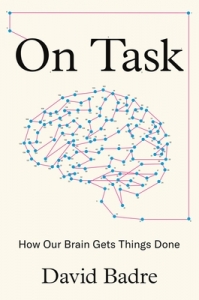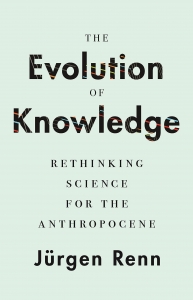“On Task: How Our Brain Gets Things Done” with Professor David Badre
Neural mechanisms in the human brain that are responsible for generating and keeping track of plans, and influencing a cascade of brain states that can link our goals with the correct actions are known as Cognitive Control. These mechanisms and processes enable us to transform plans and goals into actions. Cognitive Control, also known as Executive Control inhibits automatic responses and supports flexible, adaptive responses and enables sophisticated actions to achieve desired goals. From making a cup of coffee to buying a house, from planning a trip to a shopping mall to outlining a career path, humans are uniquely able to execute necessary actions. How do we do it? In his book “On Task: How Our Brain Gets Things Done”, cognitive neuroscientist David Badre presents the first authoritative introduction to the neuroscience of Cognitive Control. In this episode of Bridging the Gaps I speak with Professor David Badre to discuss this astonishing phenomenon, these fascinating mechanisms that have profound impact on our well-being.
David Badre is professor of cognitive, linguistic, and psychological sciences at Brown University, where he is also on the faculty of the Carney Institute for Brain Science. He and his lab have made pioneering contributions to the neuroscience of Cognitive Control and Executive Function.
I open our discussion by asking professor Badre why the scale of Cognitive Control activities is very large in the human brain as compared to all other animals. We discuss the effectiveness of Cognitive Control which is unique to the human brain. These days it is widely accepted that the prefrontal cortex is crucial for our highest mental functions, including cognitive control. But it took us a while to understand this. Professor Bare discusses the research on “the puzzle of the frontal lobe” that informs us that the prefrontal cortex is crucial for our highest mental functions. Cognitive control is about transforming knowledge into actions; so before actions can happen, the knowledge must exist. Professor Badre explains our present understanding of how the brain acquires knowledge through learning and how acquired knowledge is retained in the memory. Professor Badre explains how the brain aims to balance stability and flexibility in general and how it aims to balance cost and reward during the information retrieval process. We also touch upon fascinating research questions that professor Badre and his colleagues are presently working on in BadreLab.
Complement this podcast with the fascinating discussion with Professor Daniel Schacter on “Seven Sins of Memory” and then listen to Professor Jonathan Schooler on “Meta-awareness and Mind-wandering”



Connect With Us